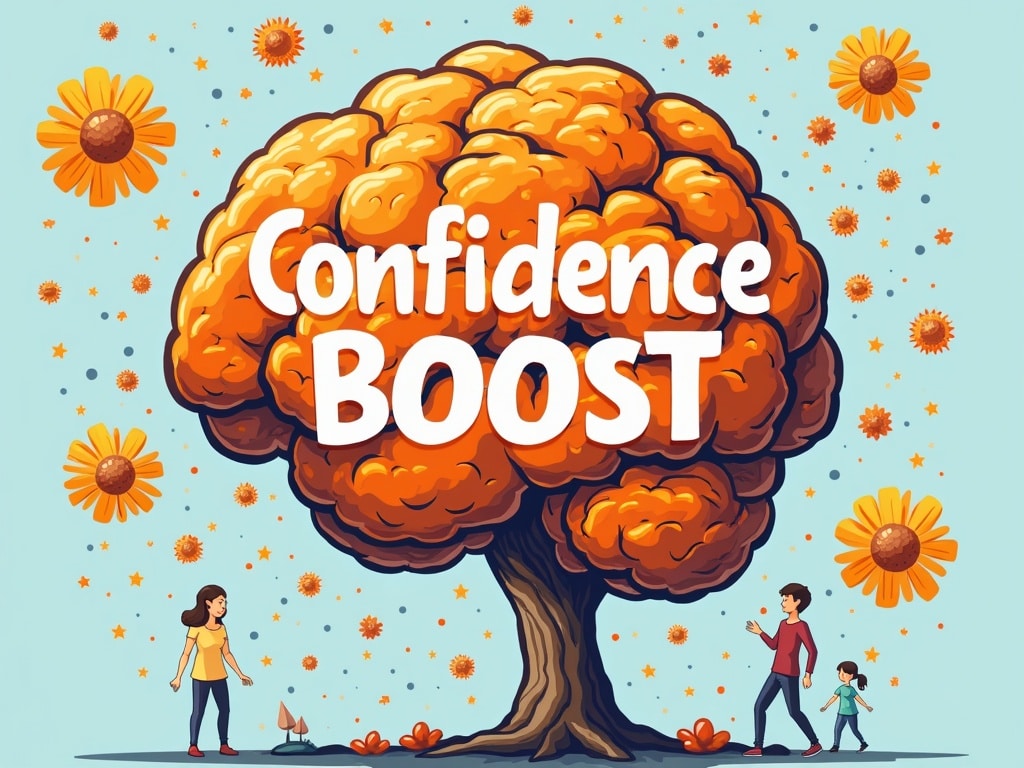How to Be More Confident: A Comprehensive Guide
Ever walked into a room and felt like all eyes were on you, and not in a good way? Maybe your heart started racing, your palms got sweaty, and you just wanted to disappear. We've all been there. Lack of confidence can hold you back from pursuing your dreams, speaking your mind, and truly enjoying life. But what if you could flip the script? What if you could walk into that same room with your head held high, feeling empowered and ready to take on anything? Confidence isn't some mystical quality you're born with; it's a skill you can cultivate, a muscle you can strengthen. This guide will give you practical, actionable strategies to build your confidence, step by step.
Understanding Confidence: What It Is and Isn't
Before diving into the how-to, let's clarify what confidence actually means. Confidence isn't about being the loudest person in the room or believing you're better than everyone else. It's not arrogance or boasting.
True confidence is an inner belief in your abilities, qualities, and judgment. It's about accepting yourself, flaws and all, and trusting that you can handle whatever life throws your way. It's a quiet assurance, a knowing that you are capable and worthy.
Here’s a breakdown:
- Confidence IS: Self-assurance, self-acceptance, belief in your abilities, resilience.
- Confidence IS NOT: Arrogance, bragging, perfection, the absence of fear.
Understanding this distinction is crucial. You don't need to be perfect to be confident. You just need to believe in your potential and be willing to learn and grow.
Laying the Foundation: Self-Awareness and Acceptance
Building confidence starts from within. It requires honest self-reflection and a willingness to embrace who you are, both the good and the not-so-good.
Identify Your Strengths
What are you good at? What comes naturally to you? Make a list of your skills, talents, and positive qualities. Don't be modest! Ask friends and family for input if you're struggling. Recognizing your strengths is a powerful confidence booster. It reminds you of what you bring to the table. Write them down and revisit them often.
Acknowledge Your Weaknesses
Everyone has weaknesses. Instead of trying to hide them, acknowledge them. Identify areas where you struggle or want to improve. This isn't about beating yourself up; it's about recognizing opportunities for growth. Once you're aware of your weaknesses, you can start working on them or find ways to compensate for them.
Practice Self-Compassion
This is perhaps the most important step. Treat yourself with the same kindness and understanding you would offer a friend. When you make a mistake, don't dwell on it. Learn from it and move on. Forgive yourself for your imperfections. Remember, everyone makes mistakes. Self-compassion creates a safe space for growth and allows you to build confidence without the pressure of unattainable perfection. Consider meditation or mindfulness exercises to further strengthen your self-compassion.
Taking Action: Practical Strategies for Building Confidence
Now that you've laid the groundwork, let's move on to practical strategies you can implement in your daily life.
Set Small, Achievable Goals
Don't try to overhaul your entire life overnight. Start small. Set realistic goals that you can achieve relatively easily. Each time you accomplish a goal, you'll experience a sense of accomplishment that will boost your confidence. Gradually increase the difficulty of your goals as your confidence grows.
For example, if you're afraid of public speaking, don't sign up to give a keynote address. Start by speaking up in smaller meetings or joining a Toastmasters club.
Challenge Negative Thoughts
Negative thoughts are confidence killers. Learn to recognize and challenge them. When you catch yourself thinking negatively, ask yourself:
- Is this thought based on facts or feelings?
- Is this thought helpful or harmful?
- What is the evidence for and against this thought?
- What would I say to a friend who was having this thought?
Replace negative thoughts with positive affirmations. For example, instead of thinking I'm going to fail, try thinking I'm capable of learning and improving.
Practice Positive Self-Talk
The way you talk to yourself has a huge impact on your confidence. Replace negative self-talk with positive affirmations and encouraging words. Talk to yourself like you would talk to a friend you're trying to encourage. Remind yourself of your strengths, your accomplishments, and your potential.
Embrace Failure as a Learning Opportunity
Failure is inevitable. Everyone fails. The key is to not let failure define you. Instead, view it as a learning opportunity. What can you learn from this experience? How can you improve next time? Reframing failure as a stepping stone to success can significantly boost your confidence. Thomas Edison famously said, I have not failed. I've just found 10,000 ways that won't work.
Step Out of Your Comfort Zone
Growth happens outside of your comfort zone. Challenge yourself to try new things, even if they scare you. Apply for that job you don't think you're qualified for. Strike up a conversation with a stranger. Travel to a new place. Each time you step outside of your comfort zone, you prove to yourself that you are capable of more than you thought.

Practice Self-Care
Taking care of your physical and mental health is essential for building confidence. When you feel good about yourself, inside and out, you're more likely to feel confident.
Prioritize:
- Sleep: Aim for 7-8 hours of quality sleep per night.
- Nutrition: Eat a healthy, balanced diet.
- Exercise: Engage in regular physical activity (even a short walk can help!).
- Stress Management: Practice relaxation techniques like meditation, yoga, or deep breathing.
Dress the Part
While confidence comes from within, your appearance can influence how you feel about yourself. Wear clothes that make you feel good and that reflect your personality. When you feel good about how you look, you'll exude more confidence. It isn't about expensive clothes or adhering to trends; it's about feeling comfortable and presentable in your skin.
Improve Your Body Language
Your body language speaks volumes, even before you say a word. Stand tall, make eye contact, and smile. Project an air of confidence, even if you don't feel it at first. Research shows that confident body language can actually influence your brain chemistry, making you feel more confident.
Prepare and Practice
Preparation is key to confidence, especially in situations where you feel anxious. If you have a presentation to give, practice it thoroughly. If you're going to a networking event, research the attendees and prepare some conversation starters. The more prepared you are, the more confident you'll feel. Knowing your subject matter inside and out reduces the fear of the unknown.
Long-Term Confidence: Making It a Habit
Building confidence is an ongoing process, not a one-time fix. Here's how to make confidence a lasting habit:
Celebrate Your Successes
Acknowledge and celebrate your accomplishments, no matter how small. Keep a journal of your successes and review it regularly. This will help you stay motivated and remind you of how far you've come.
Surround Yourself with Positive People
The people you surround yourself with can have a significant impact on your confidence. Choose to spend time with people who are supportive, encouraging, and positive. Limit your exposure to negative or critical people who drain your energy and undermine your confidence.
Continuously Learn and Grow
Never stop learning and growing. Pursue new interests, develop new skills, and challenge yourself to expand your knowledge. The more you learn, the more confident you'll feel in your abilities.
Help Others
Helping others is a great way to boost your own confidence. When you focus on helping others, you take the focus off of your own insecurities and realize you have something valuable to offer the world. Volunteer your time, mentor someone, or simply lend a listening ear to a friend.
The Journey to Confidence
Building confidence is a journey, not a destination. There will be ups and downs along the way. Be patient with yourself, celebrate your progress, and never give up on yourself. Remember that everyone struggles with confidence at times. The key is to keep practicing these strategies and to believe in your potential. With time and effort, you can build the confidence you need to achieve your goals and live a more fulfilling life. So, take a deep breath, stand tall, and embrace the amazing person you are!

